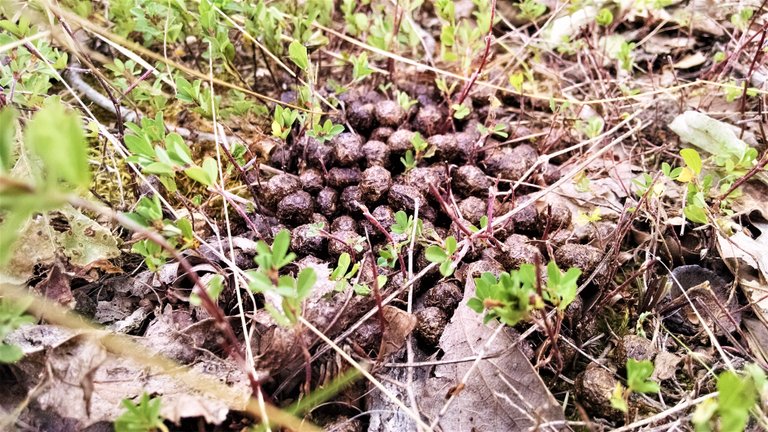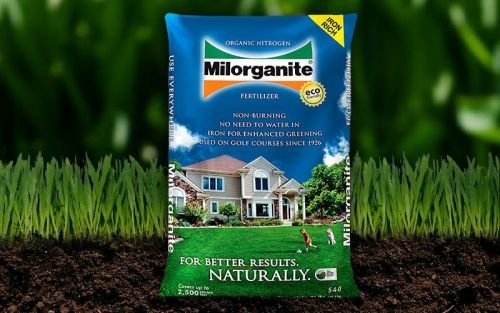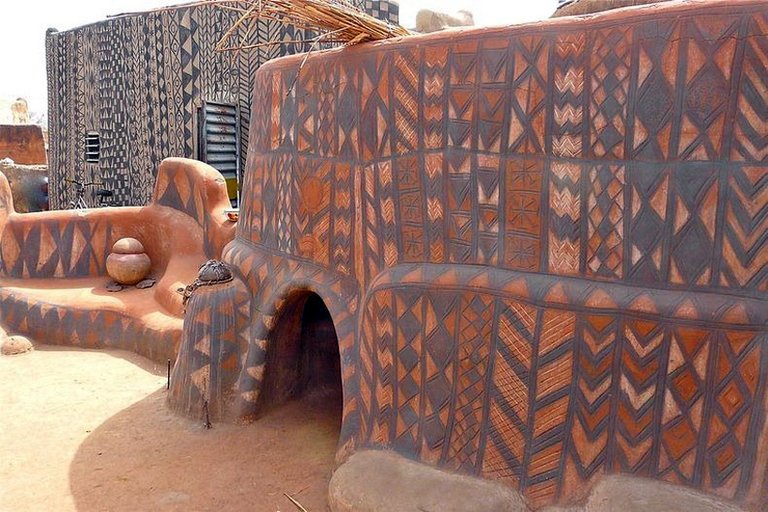I originally wrote this article for Nifty Homestead. You can find it in context here!
https://www.niftyhomestead.com/blog/homestead-manure/
When I lived in the city, I had the luxury of ignoring poop. If a neighbor’s dog left it on my tiny lawn, it was a rude, unusual inconvenience. Aside from what I delicately flushed into oblivion with the touch of a lever, my experiences with poop were largely nonexistent.
My suburban upbringing trained me to think of it as something dirty, something that I paid city services to dispose of, and something that had no meaningful impact on my life.
Fast forward several years, and I am now a new homesteader whose daily life is all about finding, collecting, processing, cleaning, and analyzing the very poop that I strove to ignore during my urban days. But I do this with (mostly) delight because on a homestead, poop is hardly considered waste.
Poop is one of the more valuable resources we have at the moment, and in these early stages of our homesteading journey, it’s one of the keys to making our land more than the unkempt scrub-field that it was when we first moved here three months ago.
So strap on your muck boots and uncurl your toes. We’re going to explore 3 reasons why this under-appreciated material is useful.
1. Poop Is Generous
Most plants thrive when the optimal balance of air, water, and nutrients are achieved through humus-rich, aerated soil. Even before compounds like nitrogen and phosphorous had been identified or given a name, people knew that there was something about manure that was necessary for optimal plant growth — particularly for food crops.
If you have animals, you have the capabilities of amending your soil in amazingly effective ways. The utility of an animal is not restricted just in their meat, fur, eggs, or milk, but in what they produce through straight-up digestion.
The manure from any livestock you own is a fabulous resource for making both your pastures and gardens more productive and lush. On our homestead, we pasture rabbits specifically to harvest their manure. And let’s admit it, there’s hardly a cuter animal for such purposes.
Now, with most manures, if you apply them fresh, the high nitrogen levels–particularly in chicken manure– will burn and/or kill plants. You need to compost it before applying it to your gardens–it counts as the “greens” in your compost pile. Rabbit manure, however, is ready-made to be spread in the garden, with the added benefit of helping retain moisture as well! With so much work to be done quickly as we settle into our first year on the homestead, any bit of saving time is worth it to us!

If you don’t currently have livestock, don’t fear–if you yourself are reasonably healthy and not on too many medications, a source of nutrients for your land may be more personal than you realize.
Though it is hardly dinner table talk, human waste can and has been used as fertilizers for centuries. One way to use it safely after composting is to enrich the soil around your fruit trees, though it is not recommended for leafy greens that you plan on eating raw.
It’s a low-cost way to take responsibility for your own waste, reduce water use, fertilize your orchard, and certainly give your in-laws something to shake their head at. For more information, check out the Humanure Handbook .

Check out their website at http://humanurehandbook.com/
If the very thought is making you want to stop reading this article, let me run this past you. Go into any home improvement store and check out the gardening aisle. It’s very likely you’ve seen a product called “Milorganite,” sold as a garden fertilizer.

Image taken from http://www.milorganite.com/
This product, so nicely packaged and widely available, is the bio-solids from the city of Milwaukee’s sewage processing plant. I have to say, if I have a choice between the two, I’d rather know the source of my “black gold” than get it sourced from strangers in a different state.
2. Poop Is Informative
Anyone who keeps animals needs to be keenly aware of both what goes into and comes out of their creatures. A chicken with a pasted-up backside, soupy poop in your sheep pen, or weird colors coming out of your ducks are often indications of something wrong.
Sometimes, this is could be the first indication you have of disease and a sure call to action. Even when my animals all seem to be in good health, I make it a point to check their poop daily.
Whether I’m collecting it for composting, spraying it off the porch, or tilling it into the ground, it is a constant source of feedback about what my birds have been eating, how my rabbits are feeling, and what my goats have been up to.
3. Poop Is Strong
Believe it or not, it can be used as a fantastic building material. Oh, don’t wrinkle your nose like that! People have been doing this for centuries and with fantastic results. From the gorgeous Kassena homes of Burkina Faso, the Beehive houses of Turkey, to the wattle and daub roundhouses of England, cow manure is known as one of the finest natural plasters for natural building.

Gorgeous Kassena homes in Burkina Faso. Image © Rita Willaert, taken from https://www.designboom.com/architecture/gurunsi-earth-houses-of-burkina-faso/
Manure isn’t just used because it’s cheap — it’s incredibly durable as well. Compare the longevity of the British roundhouses, many of which are standing to this day, with modern construction. For example, stucco and piano wire, a modern “equivalent” often begins to degrade within five years!
I can personally vouch that using manure neither smells nor attracts insects to the building project. When my husband built our Earth Oven, he wanted to build it as naturally as possible ( see our YouTube playlist of the build here! --> https://www.youtube.com/playlist?list=PLJf5xvt40NPZrhZhpIPQ4UDtpHK-cxsUH ).
To finish it off, he collected fresh cow manure from a friend down the road and spread it straight on the oven to seal the construction. Our wood-fired pizza was delicious, there was no scent of poo in the air, and you couldn’t ask for a more earth-friendly or natural material!
When it comes time to finally build our home, we’re planning to use all natural materials from our land, so you can bet when it comes time for plaster, we’ll be using the gifts from our (eventual) milk cow to get the job done.
All I’m Saying Is Give Poop A Chance
Though poop is often relegated to the conversations of seventh-grade boys in the hallways or juvenile jokes, I truly believe that it needs to be redeemed from its lowly consideration.
This material has always been produced as long as anything has been alive, and it’s a completely undervalued resource in much of the world today. On our homestead, we try to use everything on the land as fully as possible.
In order to be self-sufficient and responsible for all that comes into and goes off of our land, we don’t have the luxury of just flushing it away. And frankly, we don’t want to…it’s too valuable!
Resources
What Is Milorganite, (http://www.milorganite.com/using-milorganite/what-is-milorganite)
Who Uses Sh*t To Build A House, Global Citizen (https://www.globalcitizen.org/en/content/who-uses-sht-to-build-a-house/)
Stink Human Poop Fertilizer, Modern Farmer (https://modernfarmer.com/2014/07/stink-human-poop-fertilizer/)
Build Your Own Earth Oven, Kiko Denzer (http://amzn.to/2zvsDMw)
Rabbit Manure In The Garden, Vegetable Gardener (http://www.vegetablegardener.com/item/8156/rabbit-manure-in-the-garden)
Humanure Headquarters, Joseph Jenkins (http://humanurehandbook.com/)
Other places to find Simple Life Homestead Online!
Blog: http://www.simplelifehomestead.com/
YouTube: https://www.youtube.com/channel/UCwDzB6sjt8sZfB9hVUojxrQ
Facebook: https://www.facebook.com/SimpleLifeHomestead/
Twitter: @SLHomestead
ooooooooh what kind of natural house are you building?! We really want to build a cob/strawbale hybrid one day. Also duck poop is also cold :)
It's a sort of timber-frame, half-buried hybrid thing, hahah! That style would use the resources we have on our land the best, we think. Of course, once we finally get to the building stage, maybe further refinements will be in order! I'm looking forward to comparing notes once we both get to the house portion of our homesteads. Also! So good to know on the duck poop! They certainly make enough of it.
Well color me curious! I definitely want to have a root cellar when we build a house and I wouldn't be against building it into the earth if the property is right for it. Timber framing is really beautiful but I love cob! I am considering a timber frame with strawbale exterior walls (north idaho needs the insulation) and cob interior. It's definitely going to be different
Whew, you're brave to beheaded to North Idaho! There seems to be a lot of homesteaders there, though. We moved from Northeastern Ohio to get to our homestead (we were near the Cleveland area), and one thing we're so looking forward to is a milder winter. We are total cold wimps, and have had our fill the 100+ days of snow on the ground, haha!
Can't wait to see all these house plans come to fruition someday.
We miss the winter sooooo much. We moved from northern japan and our area received over 100 inches of snow each winter. Here there are no seasons, it's too hot and the bugs are insane!
I can't wait either (though I'll have to). Good thing I'll be able to watch you guys :)
Hi! I am a robot. I just upvoted you! I found similar content that readers might be interested in:
https://www.niftyhomestead.com/blog/homestead-manure/
Thanks, robot! Like I said in the introduction, I am the author of the original post on the Nifty Homestead--I have reposted it here to make sure that others can see it on Steemit!
Good cover. It is best to respond honestly to any of those.
What do you mean? I promise I'm not trying to hide anything. :) I really did write the original article. Is there something I'm missing?
The humanure book changed my life! It's a great read!
I love that it is free to download from their website. Have you been humanureing? How has it gone?? We haven't started yet, but we are very close to finally claiming independence from our septic system!
I'm totally convinced that in most situations floating turds in water is a bad idea. That said, I do this almost every day. I have experimented with hot composting my very own humanure though, along with chicken and rabbit manures. I need to get a better carbon source though. Hardwood shavings would be nice... similar to what J. Jenkins uses...
While I don't agree with humanure I have for at least 45 years recognized the value of manure on the homestead. I like the pottery of Burkina Faso but have never seen the housing like this. Good post. Thanks.
I appreciate your comment! I never expect anyone to agree with everything I share--I think respectful conversation is fascinating, even when people come from different sides of the table. Thanks!
So, have you homesteaded for 45 years?? We're just starting in our first, with SO much to learn, still.
Also, if you liked that, check out the Ndebele houses of South Africa-- http://www.amusingplanet.com/2014/09/the-painted-houses-of-ndebeles.html . Absolutely gorgeous.
No I have not homesteaded for 45 years but have lived rural most of my life and have lots of experience with organic gardening, livestock, living off-grid, etc. We are starting from scratch now and will be applying skills learned over the years to our new place.
Thanks for the link. We like working with clay, leather, and wood.
Oh, how I would love to sit down and learn from you both! I followed you a few weeks back, and we're looking forward to seeing how the Father guides your journey as well.
Congratulations @slhomestead! You have completed some achievement on Steemit and have been rewarded with new badge(s) :
Click on any badge to view your own Board of Honor on SteemitBoard.
For more information about SteemitBoard, click here
If you no longer want to receive notifications, reply to this comment with the word
STOPI was just enjoying some manure earlier. I love that stuff... for gardening.
Haha, exactly. No worries--if anyone understands our love for poop, animals waking us up at early hours, and doing things the "hard" way, it's the homesteading community.